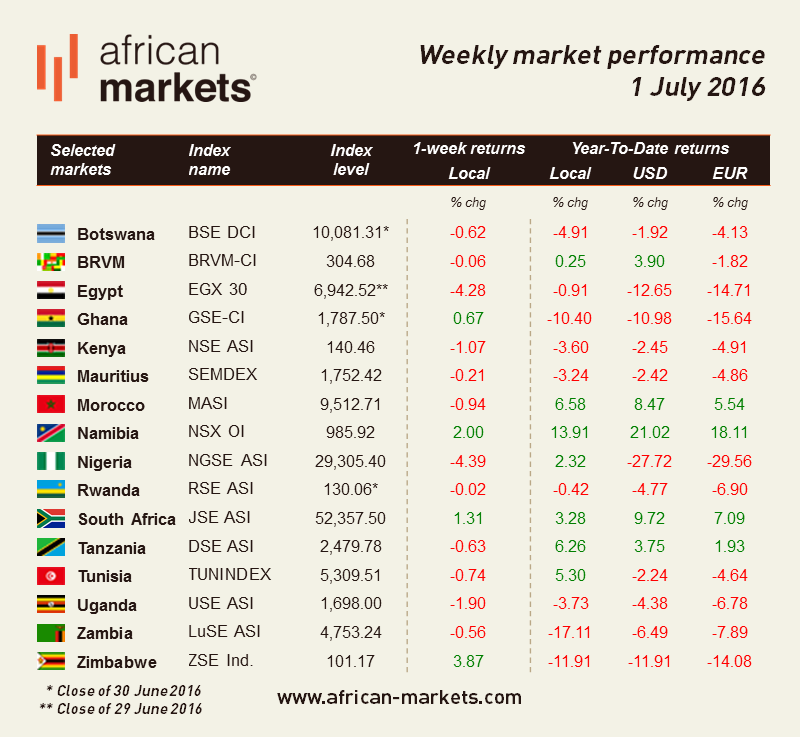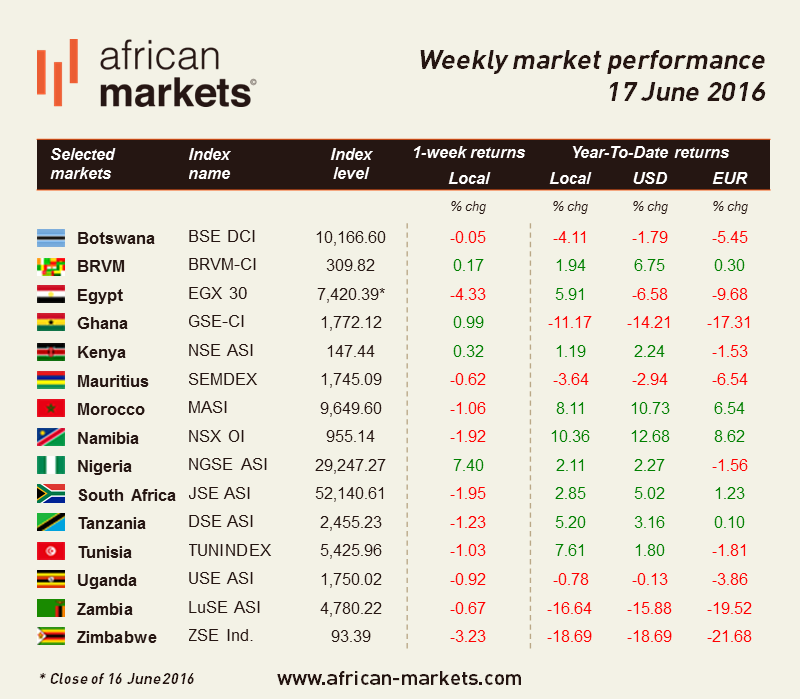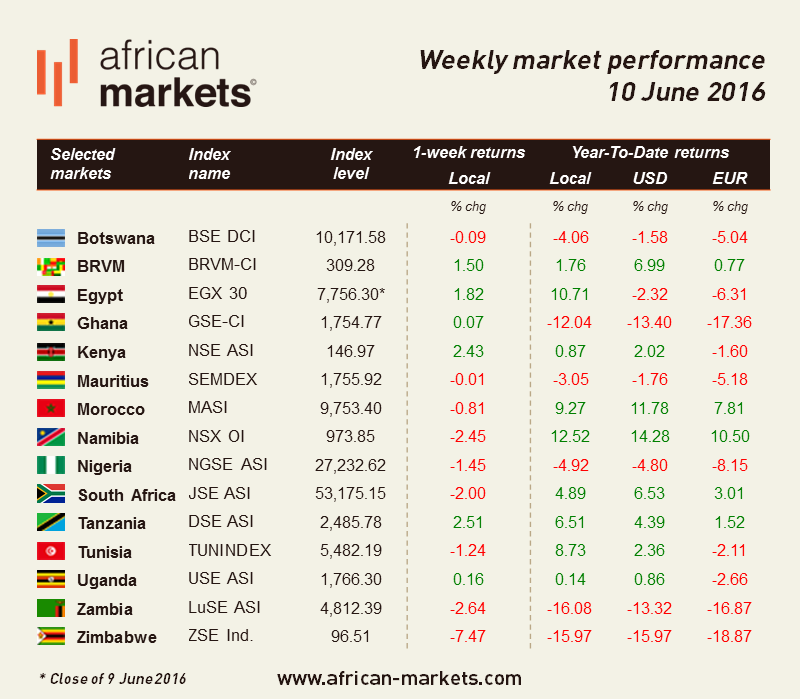
After a strong degree of uncertainty stemming from the Brexit global markets stabilised towards the end of the week and most risk assets are bouncing back. Sentiment over Brexit still is the key driver but attention is turning back towards the data. Expectations around US Fed hikes seems to have completely u-turned with some even pricing in the potential for rate cuts. The market expects the Fed to maintain rates on hold for the rest of this year which bodes well for African market currencies. The prospect of stimulus measures in Asia and further in Europe is helping ease concerns about Brexit and triggering a global search for yield.















































